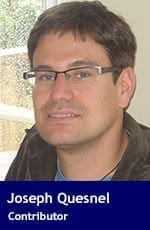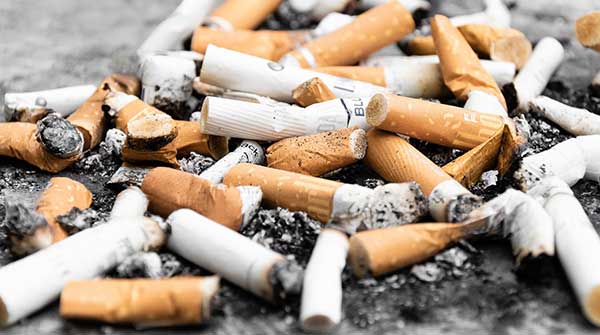Mohawk men’s tobacco smuggling case highlights complex legal and economic issues facing Indigenous Canadians
 A recent Quebec Superior Court judgment will lead to the erosion of the rule of law in the name of Aboriginal and Treaty rights.
A recent Quebec Superior Court judgment will lead to the erosion of the rule of law in the name of Aboriginal and Treaty rights.
Justice Sophie Bourque stayed criminal proceedings against two Mohawk men, Derek White and Hunter Montour, who clandestinely transported trucks containing bulk tobacco across the U.S.-Canada border for delivery at an unlicensed and unregulated manufacturing facility on reserve.
Both men violated Canada’s excise and customs framework, which aims to protect Canadians – including First Nation people – from a vast network of organized crime that collaborates with on-reserve smugglers who transport illegal cigarettes manufactured on reserve and then shipped across Canada.
The RCMP and Canada Border Services Agency documented how illegal tobacco is smuggled across Canada and sold to non-Indigenous people (in violation of the law as the Indian Act’s Section 87 tax exemption on tobacco is only for the personal use of on-reserve First Nations).
Contraband tobacco transported via reserves is used by illicit networks to fund organized crime and terrorism. RCMP reports say ISIS, Hamas, and Hezbollah benefit from money obtained through illegal tobacco sales in Canada.
Canada’s excise and customs laws aim to protect Canadians from criminal networks that manipulate the First Nation tax exemption through an inconsistent application of law enforcement on reserves.
Mohawk of Kahnawake are dependent on the tobacco trade and represent their economic self-determination. Bourque’s ruling mentioned jobs and revenues that would be lost if the trade was undermined.
However, the tobacco smuggling industry is based on open defiance of Canadian laws designed to ensure untaxed tobacco is not diverted into criminal networks. Trucks must declare at lawful points of entry into Canada, pay excise taxes and undergo ongoing inspections. Surely that is not a violation of First Nation rights. Indigenous control over the tobacco trade and reasonable regulation can co-exist.
The judge referred to the Covenant Chain, a series of agreements between the Haudenosaunee Confederacy and British colonies, which included rights to trade.
However, does any reasonable person think these agreements encompass a ‘right’ to transport 23 fully loaded 53-foot tractor-trailers containing 13,172 kg (29,059 pounds) of bulk illicit tobacco?
The Covenant Chain and colonial-era agreements with Indigenous communities envisioned orderly and respectful commerce. The Great Law of Peace is not about protecting clandestine criminal networks. The judge also quoted the UN Declaration on the Rights of Indigenous Peoples (UNDRIP), which Canada has signed. However, UNDRIP isn’t about shielding illegal smuggling.
The modern contraband tobacco trade is built on defying Canadian law and ignoring federal jurisdiction over criminal law.
Bourque’s ruling stated Canada failed in its duty to consult and accommodate the First Nations involved. However, RCMP co-operation with Indigenous police forces to enforce tobacco law and fight organized criminal networks has had limited success given Mohawk resistance towards federal authority.
How can Ottawa engage in good-faith talks in that environment?
What drives Mohawk participation in the illicit tobacco trade? First Nations communities across Canada grapple with substantial economic marginalization attributed to the Indian Act, which imposes bureaucratic impediments that hinder economic growth and entrepreneurship within reserves. One particularly glaring restriction concerns land ownership, which prevents First Nations from leveraging their land as collateral to secure business loans.
The late American economist Douglass North argued that a community’s ‘institutional matrix’ creates incentives for poverty or prosperity. Ridiculously high tobacco taxes (as much as 70 percent of retail prices on cigarettes are taxes), the First Nation tax exemption and a lack of federal enforcement on First Nation reserves are the ‘institutional matrix’ driving First Nations out of desperation into the illegal market being exploited by organized crime.
Bourque’s ruling mentioned that until the 1980s, the Mohawks of Kahnawake relied on the ironwork industry for employment. With that industry gone, the Mohawks drifted into the questionable tobacco trade. To take the bite out of illegal tobacco, Canada must unshackle Mohawk economies and let them find a new ironwork trade.
This ruling exposed the cost of excluding Indigenous communities from the mainstream economy.
Canada must enforce tobacco laws to protect us from organized crime, but Canada must liberate First Nations from 19th-century colonial economic restrictions. That will take the profit out of illegal tobacco.
Joseph Quesnel is a senior policy fellow with the Frontier Centre for Public Policy.
For interview requests, click here.
The opinions expressed by our columnists and contributors are theirs alone and do not inherently or expressly reflect the views of our publication.
© Troy Media
Troy Media is an editorial content provider to media outlets and its own hosted community news outlets across Canada.


